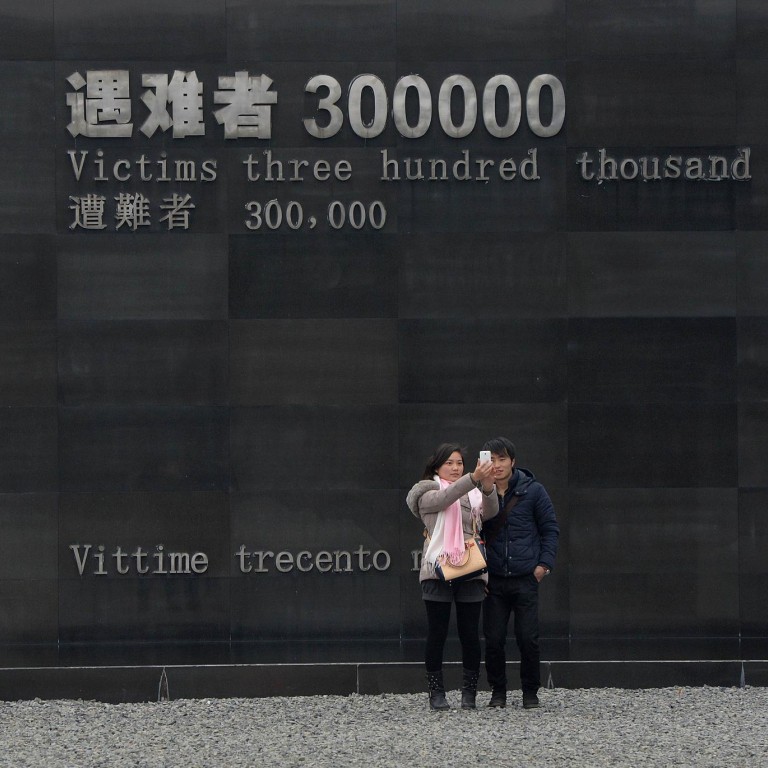
Nanking massacre memorial day is no different to Pearl Harbour remembrance, says Beijing
Remembering rape of Nanking and victory day similar to how Pearl Harbour attack and D-Day are treated in US and Europe, ministry says
Beijing yesterday said commemorating the Nanking massacre was as natural as Americans remembering the attack on Pearl Harbour, in an attempt to rebut Tokyo's questioning of China's designation of two war-remembrance days.
The National People's Congress this week designated September 3 as victory day and December 13 as a day to remember those killed by Japanese troops in Nanjing .
China maintains that Japanese troops slaughtered more than 300,000 soldiers and civilians during a six-week campaign of terror, beginning on December 13, 1937, known as the rape of Nanking. Some foreign academics have given a lower death toll but most historians agree the massacre took place.
"I would like to stress that nearly 70 years after the second world war, some people and some countries are forgetful about history, and have selective memory loss," foreign ministry spokesman Qin Gang said at a daily press briefing yesterday.

"The Chinese people will never forget their great and huge sacrifice in the war against Japanese aggression, nor will they forget the [Nanking] massacre."
Qin compared the events to how the attack on Pearl Harbour is remembered by the Americans, and the invasion of Normandy by the Allies.
"The two decisions made by the National People's Congress Standing Committee come just at the right time and are necessary," he said.
Japan's chief government spokesman Yoshihide Suga said he could not understand why China made the decision to mark the days at this point.
"I can't deny there is a question as to why they have to establish these commemoration days more than 60 years after the war," he said.
"But this is a domestic matter for China, so the government declines to comment on it.
Some people and some countries are forgetful about history
"Japan's position on world war two has not changed a bit, and Japan has followed the path of peaceful nationhood since the end of the war, which has been highly commended upon by the international community." Tensions between the two countries escalated late last year when Japanese Prime Minister Shinzo Abe visited the Yasukuni shrine, which honours Japan's 2.5 million war dead, including 14 Class A war criminals.
Abe told the Diet, Japan's legislature, this week he "must make a greater effort" to help countries such as China and South Korea understand his shrine visit.
Since taking office for the second time, Abe has said he preferred to leave history up to the historians and steered clear of making comments. But he also appears intent on issuing a fresh statement marking the 70th anniversary of the end of the war next year.
Former Japanese prime minister Tomiichi Murayama said on Thursday the landmark 1995 war apology carrying his name was an international pledge that Japan must not change, amid speculation the current conservative leaders want to revise it.
Murayama said Japan should also retain another apology over forced prostitution before and during the war, and urged Abe to stand by both statements.
He criticised attempts by nationalist lawmakers to discredit the apology by citing lack of official wartime documents.

